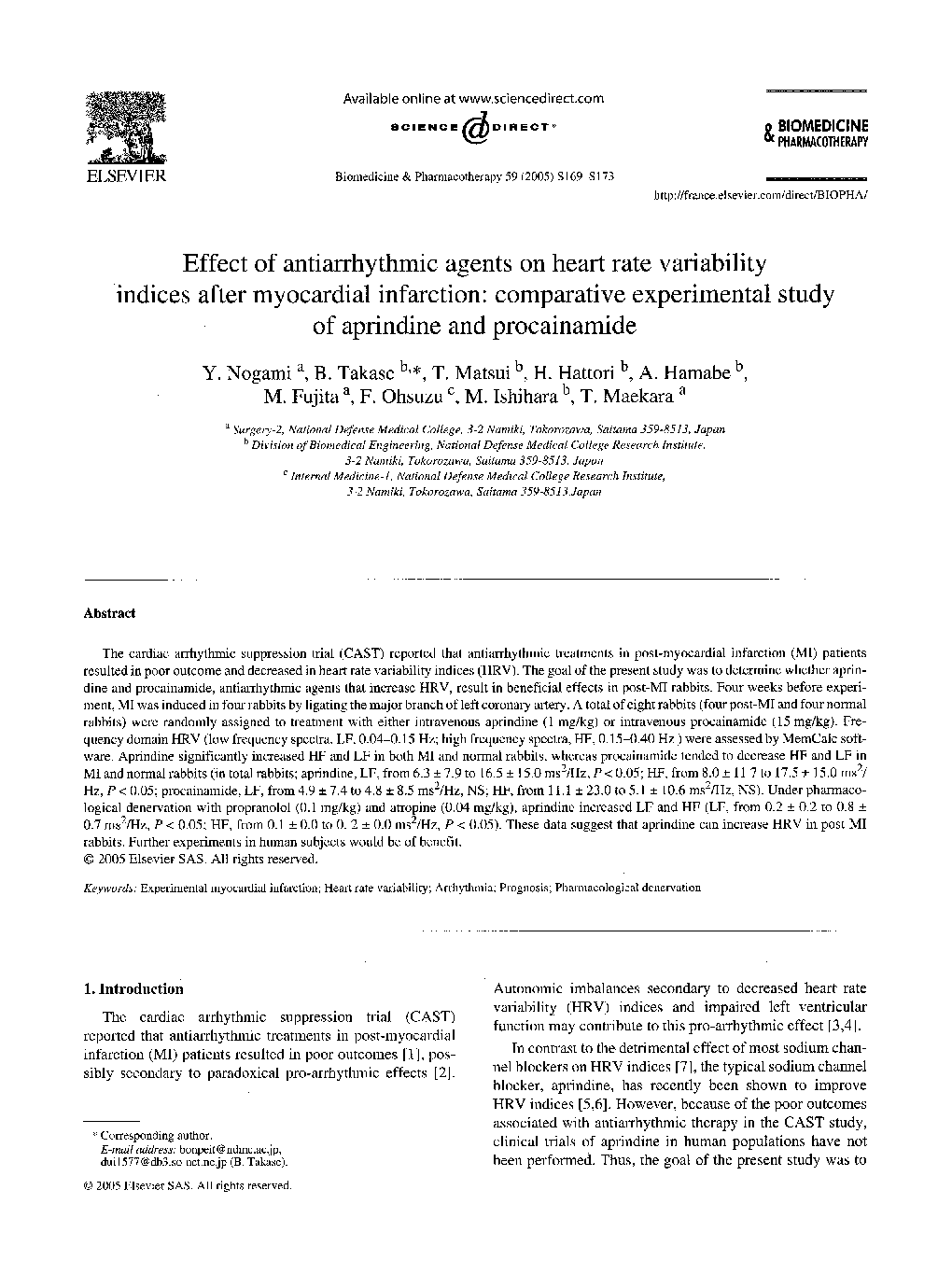| Article ID | Journal | Published Year | Pages | File Type |
|---|---|---|---|---|
| 9004472 | Biomedicine & Pharmacotherapy | 2005 | 5 Pages |
Abstract
The cardiac arrhythmic suppression trial (CAST) reported that antiarrhythmic treatments in post-myocardial infarction (MI) patients resulted in poor outcome and decreased in heart rate variability indices (HRV). The goal of the present study was to determine whether aprindine and procainamide, antiarrhythmic agents that increase HRV, result in beneficial effects in post-MI rabbits. Four weeks before experiment, MI was induced in four rabbits by ligating the major branch of left coronary artery. A total of eight rabbits (four post-MI and four normal rabbits) were randomly assigned to treatment with either intravenous aprindine (1 mg/kg) or intravenous procainamide (15 mg/kg). Frequency domain HRV (low frequency spectra, LF, 0.04-0.15 Hz; high frequency spectra, HF, 0.15-0.40 Hz) were assessed by MemCalc software. Aprindine significantly increased HF and LF in both MI and normal rabbits, whereas procainamide tended to decrease HF and LF in MI and normal rabbits (in total rabbits; aprindine, LF, from 6.3 ± 7.9 to 16.5 ± 15.0 ms2/Hz, P < 0.05; HF, from 8.0 ± 11.7 to 17.5 ± 15.0 ms2/Hz, P < 0.05; procainamide, LF, from 4.9 ± 7.4 to 4.8 ± 8.5 ms2/Hz, NS; HF, from 11.1 ± 23.0 to 5.1 ± 10.6 ms2/Hz, NS). Under pharmacological denervation with propranolol (0.1 mg/kg) and atropine (0.04 mg/kg), aprindine increased LF and HF (LF, from 0.2 ± 0.2 to 0.8 ± 0.7 ms2/Hz, P < 0.05; HF, from 0.1 ± 0.0 to 0.2 ± 0.0 ms2/Hz, P < 0.05). These data suggest that aprindine can increase HRV in post-MI rabbits. Further experiments in human subjects would be of benefit.
Related Topics
Health Sciences
Medicine and Dentistry
Oncology
Authors
Y. Nogami, B. Takase, T. Matsui, H. Hattori, A. Hamabe, M. Fujita, F. Ohsuzu, M. Ishihara, T. Maekara,
